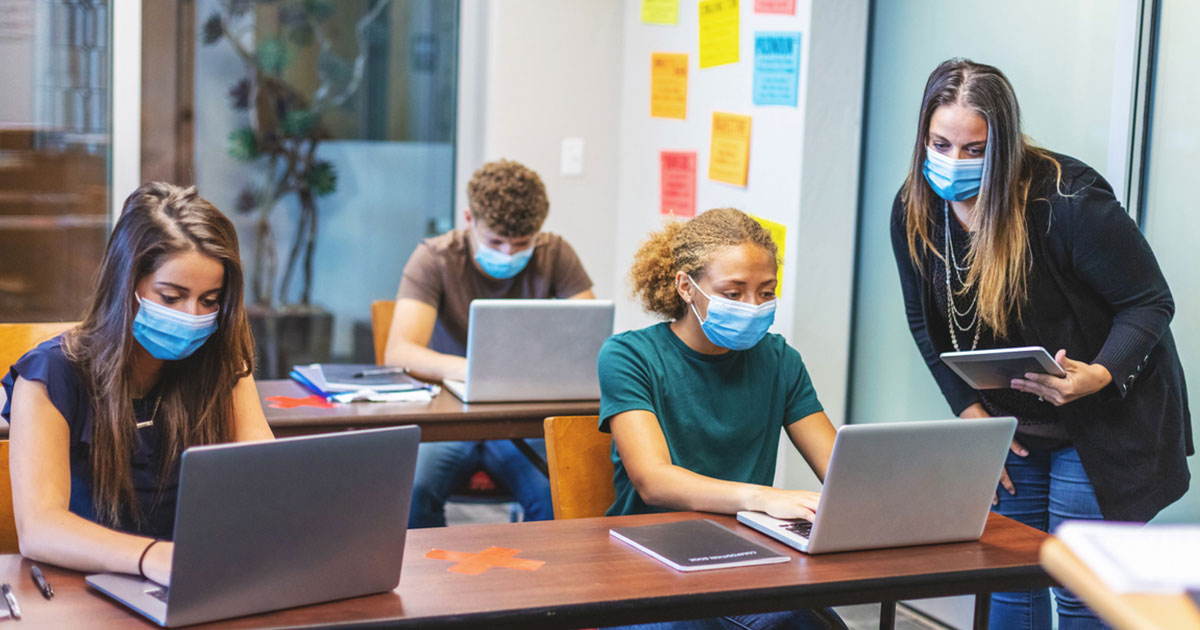Educational Resilience: Navigating Learning Amid the Pandemic

Adapting to Change: Education During the Pandemic
The global pandemic has reshaped the landscape of education, prompting a need for resilience, innovation, and adaptability. In this exploration, we delve into the challenges faced and the strategies employed in navigating education during these unprecedented times.
The Shift to Remote Learning: A New Educational Norm
The closure of schools and educational institutions prompted an abrupt shift to remote learning. Virtual classrooms, online lectures, and digital collaboration tools became the new norm. This transition required quick adaptation from educators, students, and parents alike, marking a significant evolution in educational methods.
Challenges of Remote Learning for Students
While remote learning offers flexibility, it comes with its set of challenges for students. Limited access to technology, the absence of a traditional classroom environment, and potential distractions at home pose hurdles to effective learning. Ensuring equitable access to education became a focal point during this shift.
Adapting Pedagogical Approaches for Virtual Settings
Educators had to rethink and adapt their pedagogical approaches to suit virtual settings. Strategies such as interactive online activities, virtual labs, and multimedia resources became essential in engaging students. The challenge was not only delivering content but also creating an interactive and participatory virtual learning experience.
Digital Inclusion: Bridging the Technology Gap
The pandemic emphasized the existing technology gap, making digital inclusion a critical consideration in education. Efforts were made to provide devices and internet access to students in need, ensuring that all learners have the tools required for effective participation in virtual classrooms.
Impact on Practical and Hands-On Learning
Certain disciplines heavily reliant on practical and hands-on learning faced unique challenges. Fields such as science, art, and vocational training required innovative solutions to replicate hands-on experiences in a virtual environment. Virtual simulations, at-home experiments, and creative projects became essential components of the adaptation process.
Supporting Educators: Professional Development in a Digital Era
Educators played a central role in the transition to remote learning. Professional development became crucial as teachers had to acquire new skills for effective online instruction. Training programs, workshops, and collaborative platforms facilitated the sharing of best practices and enhanced educators’ capabilities in a digital era.
Addressing the Emotional Well-being of Students
The upheaval caused by the pandemic impacted not only the academic but also the emotional well-being of students. The lack of social interactions, uncertainties about the future, and the challenges of virtual learning contributed to heightened stress and anxiety. Comprehensive support systems were necessary to address these concerns.
Parental Involvement: A Key Element in Educational Resilience
With students learning from home, parental involvement became more integral than ever. Parents took on roles as facilitators, providing technical support, creating conducive learning environments, and collaborating with educators. This partnership between parents and educational institutions played a crucial role in the success of remote learning.
Reimagining the Future of Education
The challenges of education during the pandemic spurred discussions about reimagining the future of education. Concepts such as blended learning, incorporating digital tools in traditional classrooms, and fostering a more inclusive and flexible educational system gained prominence. The pandemic became a catalyst for envisioning a more resilient and adaptive education landscape.
Education During Pandemic: A Catalyst for Innovation
As we navigate the complexities of education during the pandemic, the journey also unfolds as a catalyst for innovation. Stay informed about the evolving landscape of education at Education During Pandemic, and let us collectively shape an educational future that embraces resilience, adaptability, and inclusivity.




(501).jpg)

